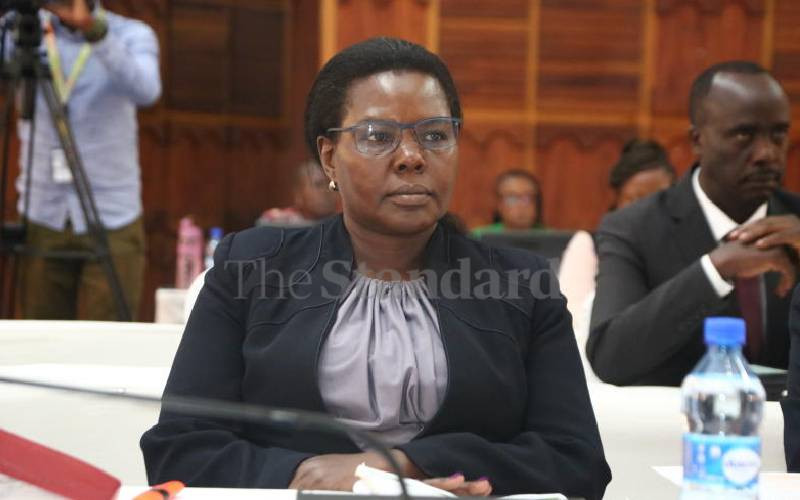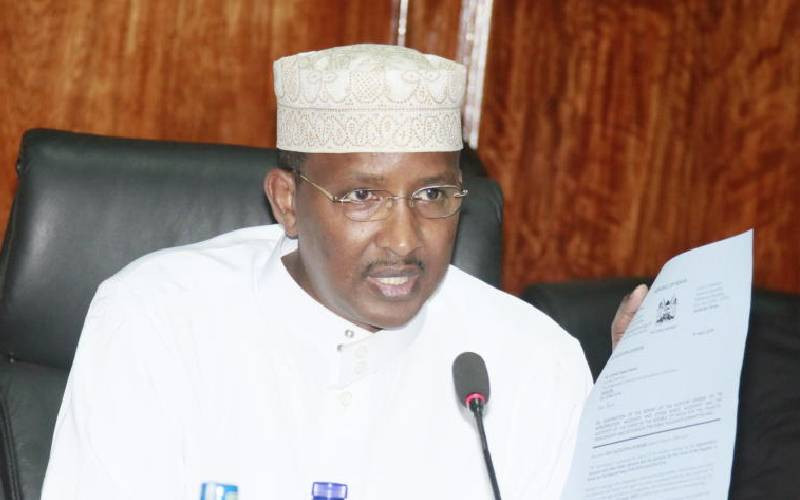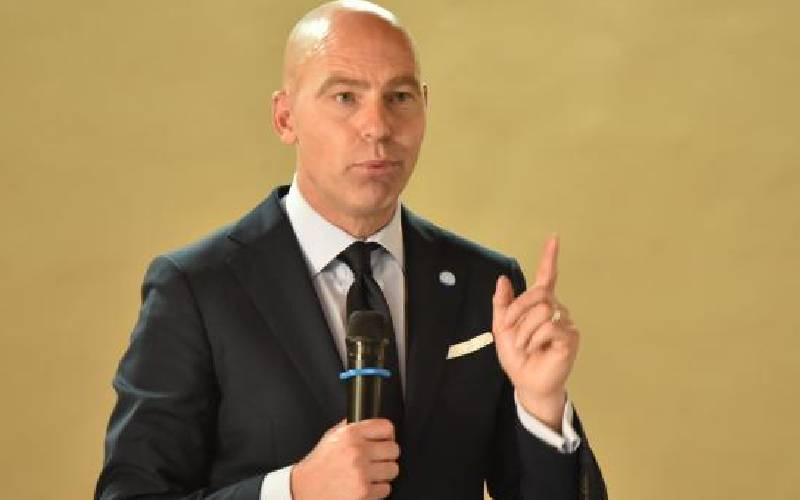Kenyans might never get a chance to recall their MPs unless the Constitution is changed, law experts now say.
The Constitution stipulates that the law to recall an MP is should take effect two years after the 2013 General Election, meaning it should come into effect in March 2015. However, legal and constitutional experts are warning that the provisions of the Elections Act 2011 on recalling MPs are near impossible to satisfy and should be declared unconstitutional.
The law was passed by the 10th Parliament in a rush on August 26, 2011, on the eve of the first constitutional deadline on passage of laws necessary to implement the 2010 Constitution.
Legal experts point out that the Charles Nyachae-led Commission for Implementation of the Constitution (CIC) has also found that the law, as passed, was and remains unconstitutional.
According to Part IV of the Elections Act 2011, the electorate in a county or constituency have a right to recall their representative on only three grounds: violation of provisions of Chapter Six of the Constitution, mismanagement of public resources and if convicted under the Elections Act.
“A recall of a Member of Parliament shall only be initiated upon a judgment or finding by the High Court confirming the grounds,” the law says.
High Court order
Such a recall can only be initiated 24 months after the election of the MP and not later than 12 months before the next General Election. This makes March 2015 the commencement date and leaves the electorate with only two years out of the five year term to recall an MP.
The law says a petition to recall an MP cannot be filed more than once during the term of the MP. People who unsuccessfully contested an election are not eligible “directly or indirectly” to initiate a recall petition.
In terms of the procedure, the petition must be filed with the Independent Electoral and Boundaries Commission (IEBC) in writing by a voter in the constituency or county in which the recall is sought. The voter must have been registered to vote in the election preceding the recall.
The lodging of the petition must be accompanied by an order of the High Court certifying violations cited. The petitioner must also table a support list of at least 30 per cent of the registered voters in the county or constituency.
The 30 per cent of registered voters support list must contain “names of at least 15 per cent of the voters in more than half the wards in the county or constituency.” “The voters supporting a petition shall represent the diversity of the people in the county or the constituency as the case may be,” the law says.
The petitioner has 30 days to collect the support list. IEBC has a similar number of days to verify the list. Within 15 days after verification, the commission must issue a notice of recall to the relevant speaker.
Thereafter and within 90 days, IEBC is required by law to conduct a recall election, which shall be decided by a simple majority. However, the election can only be valid if at least 50 per cent of the registered voters in the affected county or constituency vote to recall.
If the petition survives this test, the IEBC shall conduct a by-election and the recalled MP is free to participate in the by-election.
Stay informed. Subscribe to our newsletter
“Kenyans had best be told that the right of recall which they voted in on August 2010 was effectively taken away from them by members of the previous Parliament,” Kimutai Bosek, a lawyer who participated in impeachment process against Kericho Governor Paul Chepkwony, says.
According to the lawyer, the 60 months in which Kenyans may enjoy this right has been limited to 24. He further says the requirement of a court order is unnecessary and may not be achievable within the 24-month period.
“Even if you were to succeed at the High Court, you must lodge the second petition with IEBC which will consume more time. In all this, you must have a lawyer to guide you, making the process quite expensive,” Bosek adds.
He says the provision that recalled MPs can contest again and that an MP cannot be recalled more than once in their term is discriminatory. The President, his deputy, governors and the cabinet secretaries do not enjoy similar rights under the impeachment law.
“(Embu) Governor Wambora was impeached twice in quick succession. If any governor were to be impeached successfully right now, they would not be qualified to hold any public office in the next 10 years,” the lawyer, who also represents Joshua Sang at the ICC, says.
Restricted and cumbersome
In its third quarterly report, CIC opposed several recall clauses for “offending the Constitution”. It opposed the requirements that a court order must be obtained and that recall can only happen after two years and not in the last year of an MP’s term.
The commission said the provisions violated the sovereign power of the people as stipulated in Article 1 of the Constitution and limit the constitutional right under Article 104 of the electorate to recall.
“The Constitution gives power to the electorate to be able to initiate a recall election any time after the election of a Member of Parliament. As such, a recall election cannot be limited to only two out of five years of the life of an MP in Parliament,” the report said.
CIC is also opposed to clauses which say that the petition can only be filed once, that election losers cannot participate and that a recall petition must be accompanied by an election petition fee.
“An unsuccessful contestant of an election will be a member of the electorate like any other citizen, and as such should be able to file a petition,” the commission said.
Other critics like Jill Cottrell of Katiba Institute have opposed the law and accused MPs of deleting crucial provisions in the original Bill. Cottrel said the MPs removal of the “desertion of the electorate” provision limited the recall to situations already factored by the Constitution.
“The Constitution already says that most of these situations lead to a member automatically losing his or her seat – so the Elections Act adds little. In fact, the Act seems to make it harder than the Constitution to remove them for these things,” Cottrell wrote in a critique of the recall law.
In her conclusion, Cottrell said the law as passed makes it “not just expensive but incredibly restricted and cumbersome, probably impossible to achieve.”
University of Nairobi law scholar Prof Ben Sihanya said the Kenyan Parliament has historically thrived on acts of self-preservation at the expense of the greater public good, hence this is no surprise.
“They have made it next to impossible for the electorate to enjoy Article 104 of the Constitution. Technically, the law is unconstitutional but you quash it and replace it with what? The same Parliament will be required to develop the new law. They could even make it worse,” he said.
 The Standard Group Plc is a
multi-media organization with investments in media platforms spanning newspaper
print operations, television, radio broadcasting, digital and online services. The
Standard Group is recognized as a leading multi-media house in Kenya with a key
influence in matters of national and international interest.
The Standard Group Plc is a
multi-media organization with investments in media platforms spanning newspaper
print operations, television, radio broadcasting, digital and online services. The
Standard Group is recognized as a leading multi-media house in Kenya with a key
influence in matters of national and international interest.
 The Standard Group Plc is a
multi-media organization with investments in media platforms spanning newspaper
print operations, television, radio broadcasting, digital and online services. The
Standard Group is recognized as a leading multi-media house in Kenya with a key
influence in matters of national and international interest.
The Standard Group Plc is a
multi-media organization with investments in media platforms spanning newspaper
print operations, television, radio broadcasting, digital and online services. The
Standard Group is recognized as a leading multi-media house in Kenya with a key
influence in matters of national and international interest.









